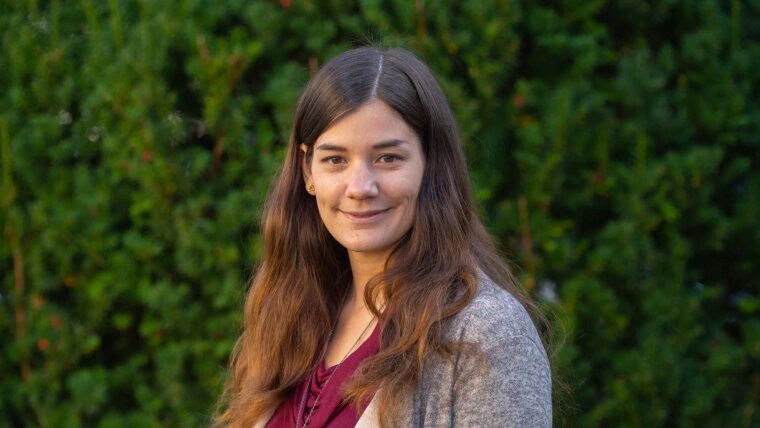
By Sebastian Hollstein
The literary genre of »nature writing« is also highly contemporary. This is where people embark on an expedition, hike in a forest or track animals and then write about their experience. The description of completely subjective interactions with »green environments« is a literary tradition that is particularly rooted in the English-speaking world. The supposedly untouched wilderness of North America inspired many authors to reflect upon their relation to nature as soon as the continent was discovered.
»Landscapes and vastness became a source of reflection for the budding national consciousness and the exploration of one’s self,« says Luisa Turczynski, who is dealing with nature writing as part of her doctorate.
»This intense preoccupation of nature, partly influenced by the writings of Jena’s early Romantic Friedrich Wilhelm Joseph Schelling, gave rise to new philosophical and literary movements such as transcendentalism, which is still a prominent school of thought today«. Its exponents, arguably the most famous being Henry David Thoreau with his work »Walden«, propagated a lifestyle at one with nature and an individual experience of religion in which nature plays a central role.
Since the late 1970s, literary scholars have increasingly questioned the various Romantic depictions of the relationship between people and nature. After initially being celebrated with great enthusiasm, Romanticism was later received in a rather differentiated way. »As highlighted by some exponents of ecocriticism, Romantic nature writing often idealizes nature as an untouched wilderness in which people have no place and are rather disconnected from it,« says Turczynski. »That’s why they are trying to find out what literature can do today to allow us to interact more responsibly with nature, especially in the shadows of the climate crisis«.
As part of her doctoral thesis, the specialist in North American culture and literature is exploring this critical, changing view of continuously used Romantic modes—with a special focus on an explicitly female perspective on the topic. »Feminist interpretations have criticized the fact that canonized nature writing, rooted in Romanticism, is a male-dominated genre in which an author stands up to nature and exploits it as a spiritual realm for transcendental experiences or self-affirmation,« explains the literary scholar. »In contrast, female writers are often assigned a different, essentially ›female‹ way of experiencing and depicting nature, which is supposedly based on a more empathetic identification with it«.
For Luisa Turczynski, however, this interpretation restricts access to an ecological conception of literature. That’s why she wants to move away from this binary, gender-based dualism in her work. To do this, she is condensing the commonalities of the juxtaposed self-nature concepts to create a model that focuses on the continuity of Romantic thoughts and depictions. Based on novels written by the female authors Ibis Gómez-Vega, Barbara Kingsolver and Abi Andrews, she is then analysing the extent to which these thoughts and depictions can be found in contemporary literature. She has come to the following (tentative) conclusion: »Women do not necessarily write differently about nature because they are women,« says Turczynski. »Rather, their depictions of nature change according to the historical context. For example, female authors use experiences of nature as a means of expressing female emancipation narratives and sometimes employ Romantic—supposedly male—elements in their writing«. In Ibis Gómez-Vega’s novel »Send My Roots Rain«, for example, the author portrays wilderness somewhat romantically as a place in which to ultimately explore oneself, experience transcendence and discover spiritual awakening. However, it is precisely that experience of nature that empowers her female protagonist to acknowledge her homosexuality and rebel against the prevailing patriarchal order.